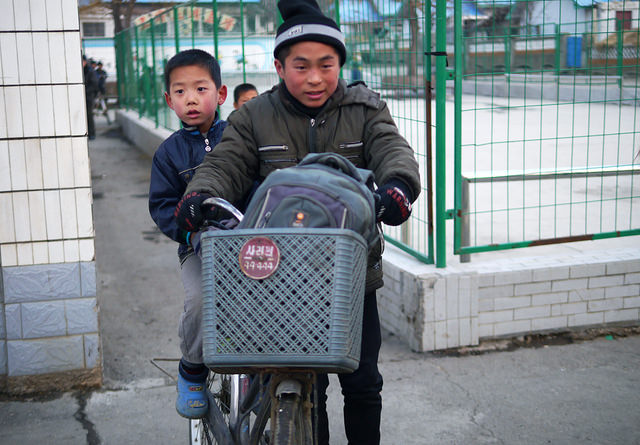Sanctioning Hunger in North Korea Worsens Quality of Life

The amount of people suffering from hunger in North Korea has been on a steady incline since the 1990s. North Korea is home to about 25 million people and 10.5 million of these people are undernourished. While 70 percent of the population relies on food aid, the country’s military ambitions have invited harsh sanctions that severely hamper its people.
Roughly a quarter of North Korea’s GDP is funneled into helping Kim Jong-Un present a façade of power via nuclear weapons development. The continued missile launches have caused a lessening of support from charities and world leaders, making it even harder for North Koreans to find food.
Because of this, the vulnerable citizens of North Korea are desperately in need of aid. According to a United Nations report, “More predictable funding is urgently required to ensure the immediate needs of the most vulnerable are addressed.”
In November 2017, North Korea launched an intercontinental ballistic missile. The heightened tensions that resulted instigated the United Nations to respond with new sanctions on the regime’s energy supplies.
But while sanctions grip the country in an attempt to incentivize halting nuclear weapons development, the sanctions have also impacted hunger in North Korea. About 60,000 children are at risk of dying due to a lack of food, according to the United Nations Children’s Fund. On Tuesday, Jan. 30, 2018, UNICEF launched a $16.5 million emergency relief for North Korea.
President Donald Trump announced new sanctions against North Korea on Friday, Feb. 23, 2018, and called them “the strongest sanctions on Korea that we have ever put on a country.” The move puts pressure on North Korea’s shipping and trade.
Former Secretary of State Rex Tillerson said in January that the international sanctions are “really starting to hurt” North Korea and was confident it would lead the regime to negotiate. The sanctions, combined with drought, corruption and a decline in crop production, add to hunger in North Korea more than they prevent weapon development.
The poor farmers of North Korea have, in some instances, resorted to using human waste as fertilizer for their crops, according to the BBC. This practice leads to the contamination of food grown in the soil. Furthermore, in January, a soldier was shot as he defected from North Korea and attempted to run across the demilitarized zone. An autopsy revealed his severe undernourishment, as well as the presence of many parasites in his stomach.
Kim Jong-Un has leveraged the threat of nuclear weapons and military to attain the opportunity to sit down with the President of the United States. All the while, the North Korean people suffer starvation in exchange. Hunger in North Korea will only continue to worsen if other charitable organizations, such as UNICEF, are unable to provide assistance to the nation.
– Sam Bramlett
Photo: Flickr
